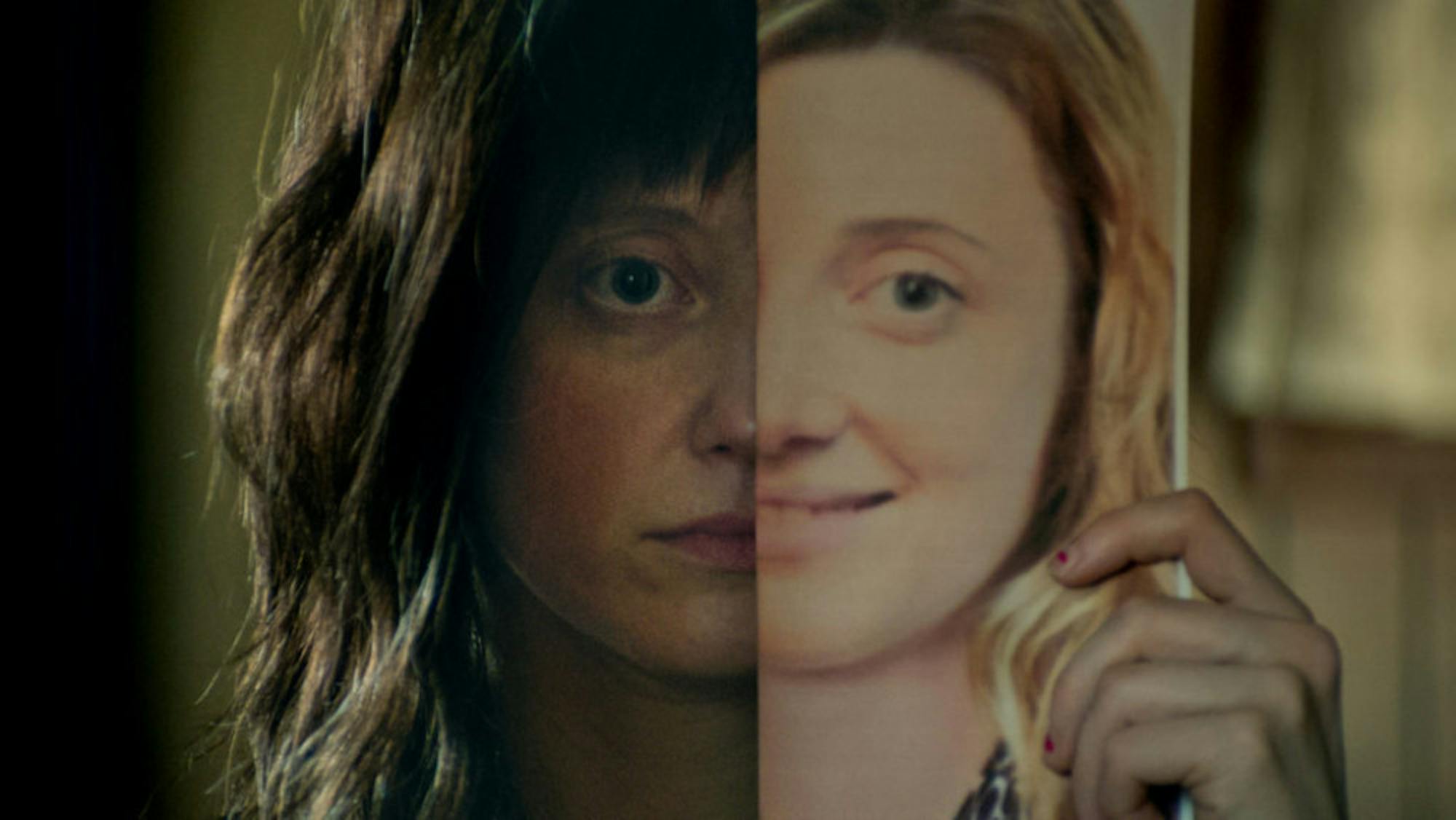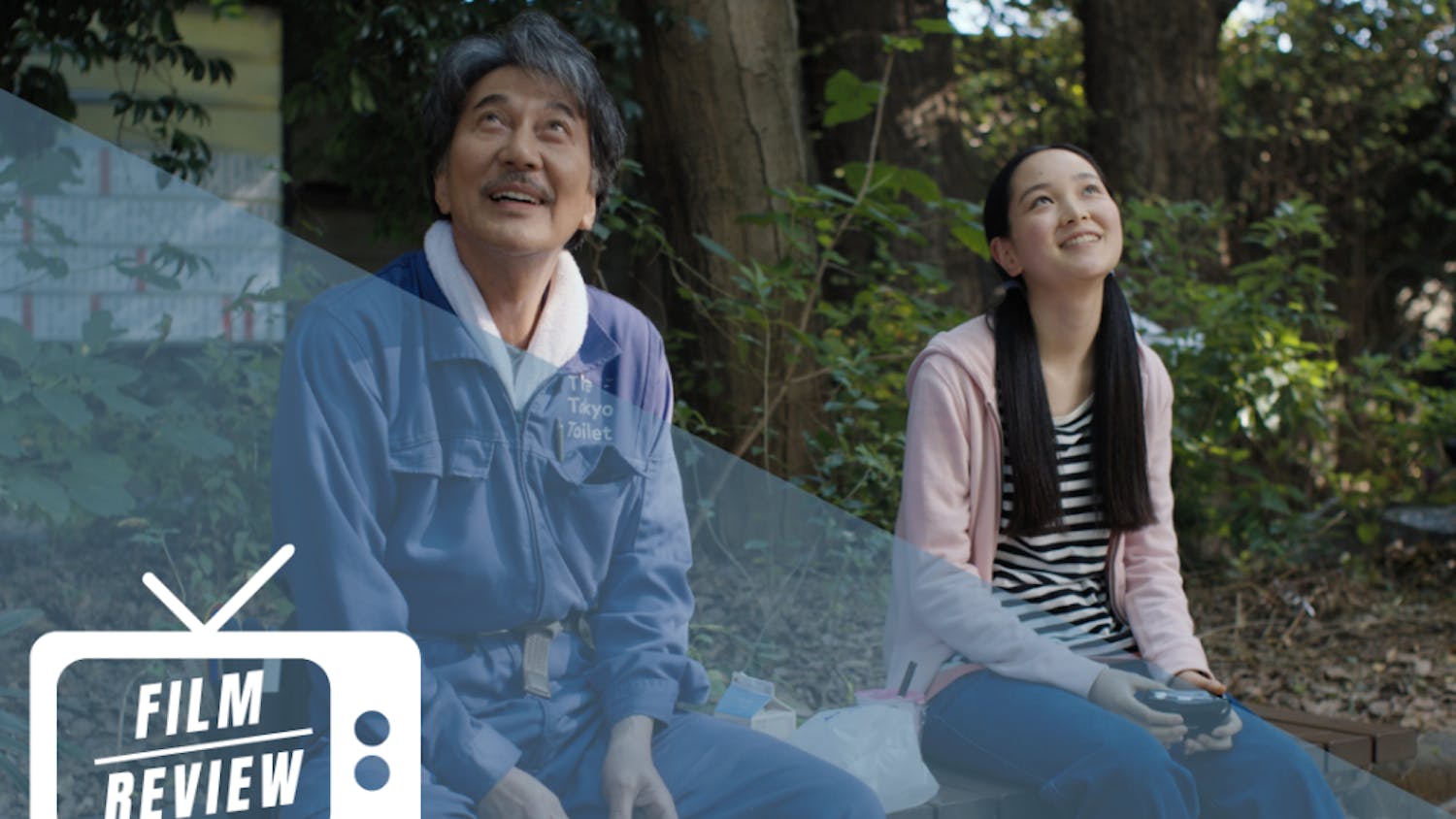
Courtesy of Samuel Goldwyn Films
Social interaction and interpersonal relationships are crucial to the human experience. “Nancy” is the latest film to explore how a lack of social belonging can destroy a human being. Director Christina Choe’s feature debut, in which she dissects the crippling effects of loneliness with razor-sharp, heartbreaking precision, premiered at this year’s Sundance Film Festival. It won the Waldo Salt Screenwriting Award in the U.S. competition.
Amid a cold, unforgiving northern landscape, Nancy Freeman (Andrea Riseborough) lives an isolated life with her Parkinson’s-addled mother Betty (Ann Dowd). She finds solace in writing stories about her miscarriage on an online blog, where she meets the lonely divorcee Jeb (John Leguizamo) who also lost a child. When they meet in person, Nancy pretends to be pregnant again, but their brief relationship falls apart when he discovers that she’s lying about her emotional progress. Her small world further collapses when her mother dies of a stroke. Left all alone, Nancy finds solace in drinking and watching TV and soon discovers a life-changing news story. The story details a girl named Brooke, who went missing 30 years ago. During the story, a projected image of what Brooke would look like in the present day is shown, and it is nearly identical to Nancy. After Nancy searches for evidence deep in her past, she concludes that she must be Brooke, and heads to meet Ellen (J. Smith Cameron) and Leo (Steve Buscemi) to await the results of a DNA test.
For a first feature, Choe races out of the gate with a fully formed style. “Nancy” hones in on its protagonist’s loneliness with a tried-and-true toolkit of art house techniques, even if it falls into some traps of first-time filmmaking. Most notable among its successes is the film’s shift in aspect ratio, or the size of the image on screen. The first act is shot in the square 1.37:1 ratio, which creates an air of claustrophobia and isolation within Nancy’s existence. However, once she reaches Ellen and Leo’s home, the frame expands to a full-screen 1.85:1 ratio — the image literally opening up as Nancy finds some semblance of a family. It’s a bold move on Choe’s part, one that deftly flies under the viewer’s radar due to the film’s endlessly engrossing narrative. Choe also employs a concise use of zooms, which emphasizes her laser focus as a director. In another move worthy of the highest praise, she streamlines the film to 87 minutes, none of which are wasted. But Choe often cuts a bit too fast, lingering on some on-the-nose metaphors (such as a lost cat) instead of her actors and the spaces they inhabit. The music can also be overbearing at times, when silence could have captured the emotion much more powerfully.
Most of the film is shot in close-up, and conversations often cut to the characters’ silent reactions to a speaker. Choe makes remarkable use of her actors’ faces, especially Riseborough’s. Riseborough has long been one of our most extraordinary performers, but this is the greatest showcase of her talents to date. She embodies Nancy. No, she is Nancy. One would believe she’s lived her entire life as the character. Her facial and verbal tics are captured with such care as to craft a compelling character study within something resembling the traditional narrative structure of a mystery. Smith-Cameron and Buscemi are both devastating as well, embodying grief, care and skepticism in equal measure.
Along with her formal approach and direction, Choe is above-all an incredibly gifted writer — and stories play a crucial role in the film’s tricky navigation of identity. It’s a testament to her skill that the narrative beats land at the perfect times, always grabbing the viewer’s attention before they begin to drift. But her real achievement is in her diction itself. Nancy’s loneliness and confused identity — stemming from her lack of a family unit — comes across in how other characters refer to her in the film’s dialogue. Emma often refers to Nancy as Brooke in direct addresses, confusing the two and often stumbling over her words. Emma eventually lands on calling her Brooke, cementing her longing for her lost child. On the other hand, Leo refuses to refer to her as Brooke, only using that name in the third person. This speaks to his skepticism and lack of acceptance toward Nancy. Through Riseborough’s reactions to what they call her, it’s clearly visible how these mixed messages send her even deeper into an identity crisis, one that reaches a crescendo in the third act when truths are more implied than revealed.
Nancy and Emma deal with their grief and longing through telling stories. And, as Choe explores in the film, these stories we tell ourselves can be crucial coping mechanisms in the choppy waters of our lives. Nancy and Emma both use writing stories as an outlet to come to terms with their troubles, all of which surround the loss of family. Choe’s writing and direction reach their apex here, finding a through-line from Nancy’s actions to Emma’s, from Choe’s own filmmaking to our watching experience. It all amounts to an unbearably emotional experience. Like a great short story, it spins us into its own mysteries.





